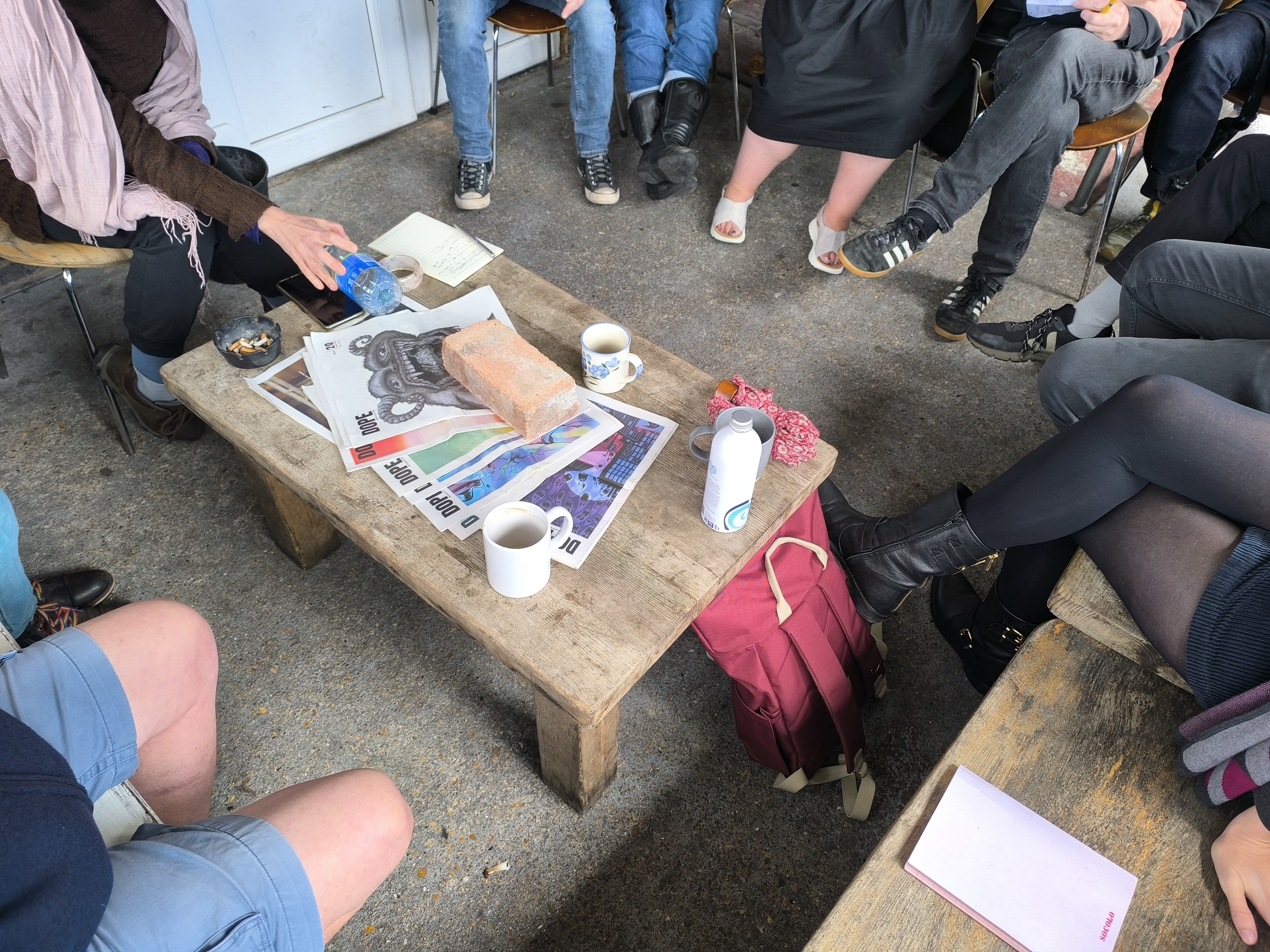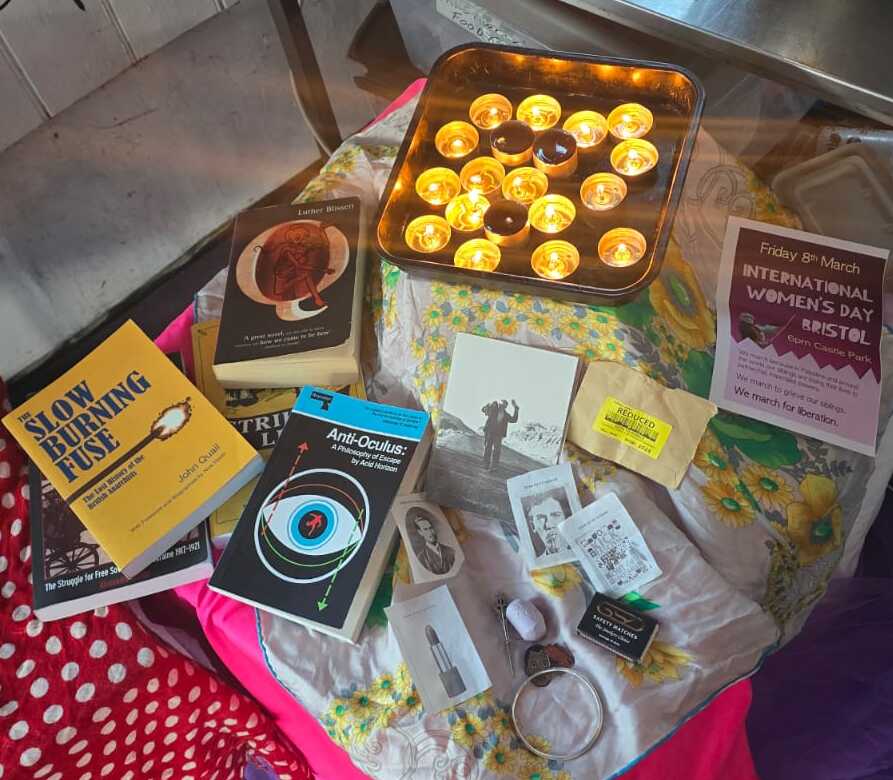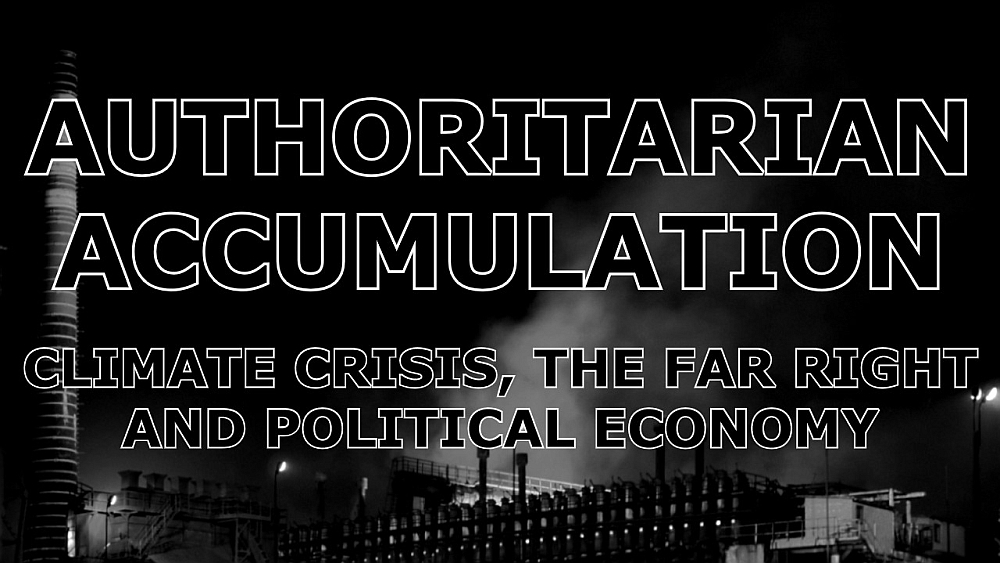Manchester Plan C’s report of their recent strategy discussions:
We started the day off with a short discussion around a recurring theme within Plan C:
How can we engage in anti-cuts politics without ending up in a position that supports the Big Society and varieties of Plan B?
How can we not just defend the elements of the social wage (services and amenities, healthcare, school education) we currently have, but actively move beyond them?
The conversation touched on how, at first glance, aspects of the Big Society such as localised ownership of community services can appear very similar to Plan C politics. Our task is to differentiate these perspectives, and articulate and agitate for the latter. We talked about splits within Plan B politics (those politics which look back to a past which probably never existed of full employment and a benevolent welfare state, and which see a return to economic growth as the benchmark of success). Some forms of Plan B politics might actually challenge the current shape of things (e.g. three day working weeks, a universal basic income) and incorporate part of Plan C, whilst some are just the politics of austerity and the rule of capitalist logic in a more palatable form. Some parts of Plan B point toward a better future (and resonate with Plan C), whilst some parts point towards the past or the current politics of austerity. This can be seen in the differences between some of the anti-cuts campaigns we have seen: some have insisted on no implementation of cuts and an improvement in conditions, whilst others have advocated a social enterprise model and the increase of taxes to pay for services.
“How can we engage in anti-cuts politics without ending up in a position that supports the Big Society and varieties of Plan B?”
We discussed the difficulties of trying to work in the real world, of identifying points and cracks to help affect change. We don’t want to fall into ultra-leftist purism, whereby we don’t engage with any politics that do not seek the immediate abolition of the state and/or capitalism. We want to improve our lives right here in the present.
Key areas of struggle
We then spent some time thinking of policies or developments which are likely to create conflict and political tension in the next six months. Since we aren’t really big enough to start campaigns of our own, working with existing groups and in already contentious areas and sites of struggle is much more possible for us.
Some of the areas we identified were:
- Bedroom tax.
- Welfare reforms.
- Childcare provision.
- Regeneration schemes in Manchester.
- Continued housing crisis.
- Increasing anti-migration sentiments and the continued relevance of the Right (for example UKIP right now).
- The continued implementation of an austerity budget in Manchester.
- The Labour Party and the Unions gearing up for a (likely to be successful) election campaign. They are likely to switch to rhetoric of only stopping “unnecessary” or “ideological” cuts.
- The continuing crisis of work, especially in a city like Manchester built on a service model.
Six Month Strategy
Plan C MCR is creating three working groups for the next six months. We have set up some minimum aims in order to keep track of our progress. Hopefully as our working groups get going we will attract new members and extra help (see below) so that we can achieve much more than our minimum aims.
“Plan C MCR is creating three working groups for the next six months.”
Group 1: Anti-cuts working group.
This group will focus on involving itself in one actual anti-cuts project. We think organising around the Bedroom Tax is a good idea. This is a campaign with broad appeal and is winnable. There are doubts as to how implementable this government policy is, and a broad variety of groups and actors are already organising against it, from radicals to elements of the Labour party, to housing and tenant associations.
Minimum aims for the next six months:
- To get involved in organising around the bedroom tax.
- To help in the day to day running of this campaign.
- To try to broaden and spread this struggle both geographically and politically. Can we demand more than just keeping housing benefits and tenancy arrangements the way they currently are?
- Whether the campaign wins or not, ensure that there is a legacy for the individuals/groups involved, e.g. an appetite to keep organising, strategising, working together etc.
Group 2: Workers against Work
The position and value of labour is a key split within the left. Many elements of the broader left are mobilising for the demand for jobs at any cost. We want to make the case for an anti/post-work politics both inside the left and wider society. An anti-work lens furthers an understanding of the current crisis and enables the development of exit routes from it. It also helps to delineate where Plan B ends and begins to point towards Plan C. Anti-work is a perspective that throws anti-austerity politics into clear relief, and which cross-cuts them: the struggle to save the NHS is an anti-work struggle, as not having to pay for healthcare significantly reduces our dependence on wages from work. The Big Society is more clearly aligned with austerity from an anti-work perspective, because it makes service provision conditional on our unpaid labour.
“Anti-work politics are already reflected in various calls for reducing the working week or implementing a universal wage not linked to work”
Moreover, a post-work perspective is necessary for engaging with a capitalism that is ever-decreasing in its reliance on mass labour. Delinking the wage (as in money per se and as in the social wage) from work is increasingly necessary for our survival as precarious or ex-workers in a post-employment economy.
Whilst some within Plan B are calling for these policies in order to return to economic growth, our focus is reducing the working week in order to increase our class power. Whilst we are not accelerationists (we don’t want to make the crisis worse) our focus is not on nurturing the economy but rather on building our collective power, within and against capitalism.
Anti-work politics are already reflected in various calls for reducing the working week or implementing a universal wage not linked to work, making this an analysis which is already on the agenda for many. But there is currently no organisation and framework for advancing a post-work position.
Minimum Aims for the next six months:
- Two ‘texts’; one intra-left e.g. for demos, one for an external audience e.g. for job-centres, people eating lunch. We want to start making an anti/post-work politics easy to find and easy to understand.
- Start posting up people’s experiences of the job centre and precarity, ways to avoid sanctions on JSA, and to eviscerate the strivers / shirkers distinction which attempts to divide workers in an out of work and more or less dependent on wages and welfare.
- Identify and develop connections with other post/anti-work groups, perspectives and policies.
Group 3: International networking
We will continue developing links with networks in Germany and the rest of Europe. We want to be part of vibrant European anti-capitalist politics, but do this in a long term, sustainable and productive way beyond one-off days of action. We will make details of this public as we continue moving forward.
Friends of Plan C
Anti-capitalist organising is a very difficult thing to do. Various political, historical and social factors are currently inhibiting our organising capacity and ability to join together to advance our collective power. Our Friends of Plan C idea is a way to attempt to increase the organisational capacity of Plan C whilst recognising that not everybody wants to or can join our organisation.
We envisage the Friends of Plan C initiative to be somewhere halfway between being a core member of Plan C MCR and being a Facebook follower or subscriber to our announcements list. We want to try to incorporate people who broadly share our politics but don’t have the time to be a core organiser. We want to try to incorporate the ideas of as many such fellow travellers as we can, and provide easy ways for people to help with discrete tasks or specific working groups.
We are developing this process slowly and will make more information available as we develop the process and iron out any teething problems.
Email: manchester@weareplanc.org
Facebook: www.facebook.com/plancMCR





